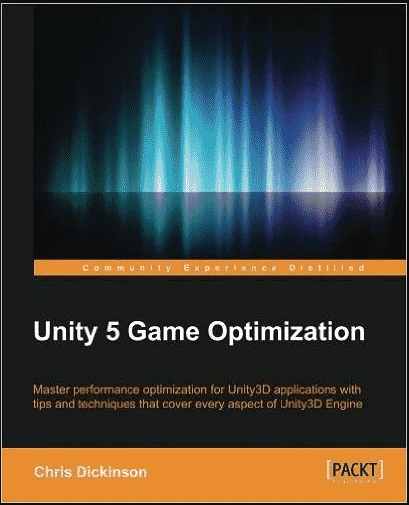书籍简介:
Master performance optimization for Unity3D applications with tips and techniques that cover every aspect of the Unity3D Engine
About This Book
Optimize CPU cycles, memory usage, and GPU throughput for any Unity3D application
Master optimization techniques across all Unity Engine features including Scripting, Asset Management, Physics, Graphics Features, and Shaders
A practical guide to exploring Unity Engine's many performance-enhancing methods
Who This Book Is For
This book is intended for intermediate and advanced Unity developers who have experience with most of Unity's feature-set, and who want to maximize the performance of their game. Familiarity with the C# language will be needed.
What You Will Learn
Use the Unity Profiler to find bottlenecks anywhere in our application, and discover how to resolve them
Implement best-practices for C# scripting to avoid common pitfalls
Develop a solid understanding of the rendering pipeline, and maximize its performance through reducing draw calls and avoiding fill rate bottlenecks
Enhance shaders in a way that is accessible to most developers, optimizing them through subtle yet effective performance tweaks
Keep our scenes as dynamic as possible by making the most of the Physics engine
Organize, filter, and compress our art assets to maximize performance while maintaining high quality
Pull back the veil on the Mono Framework and the C# Language to implement low-level enhancements that maximize memory usage and avoid garbage collection
Get to know the best practices for project organization to save time through an improved workflow
In Detail
Competition within the gaming industry has become significantly fiercer in recent years with the adoption of game development frameworks such as Unity3D. Through its massive feature-set and ease-of-use, Unity helps put some of the best processing and rendering technology in the hands of hobbyists and professionals alike. This has led to an enormous explosion of talent, which has made it critical to ensure our games stand out from the crowd through a high level of quality. A good user experience is essential to create a solid product that our users will enjoy for many years to come.
Nothing turns gamers away from a game faster than a poor user-experience. Input latency, slow rendering, broken physics, stutters, freezes, and crashes are among a gamer's worst nightmares and it's up to us as game developers to ensure this never happens. High performance does not need to be limited to games with the biggest teams and budgets.
Initially, you will explore the major features of the Unity3D Engine from top to bottom, investigating a multitude of ways we can improve application performance starting with the detection and analysis of bottlenecks. You'll then gain an understanding of possible solutions and how to implement them. You will then learn everything you need to know about where performance bottlenecks can be found, why they happen, and how to work around them.
This book gathers a massive wealth of knowledge together in one place, saving many hours of research and can be used as a quick reference to solve specific issues that arise during product development.
Style and approach
This book is organized based on the major features of Unity engine and should be treated as a reference guide. It is written as a series of investigations into both common and unusual performance pitfalls, each including a study on why the bottleneck is causing us problems, and a list of enhancements or features that can be used to work around them. Differences in effectiveness, behaviors, or feature-sets between Unity 4.x and Unity 5.x will be highlighted.
作者简介:
Chris Dickinson grew up in England with a strong passion for science, mathematics, and video games. He received his master's degree in physics with electronics from the University of Leeds in 2005, and immediately traveled to California to work on scientific research in the heart of Silicon Valley. Finding that career path unsuitable, he began working in the software industry. Over the last decade, he has made a career in software development, becoming a senior software developer. Chris has primarily worked in software automation and internal test tool development, but his passion for video games never fully faded. In 2010, he took the path of discovering the secrets of game development and 3D graphics by completing a second degree―a bachelor's degree in game and simulation programming. He authored a tutorial book on game physics (Learning Game Physics with Bullet Physics and OpenGL by Packt Publishing). He continues to work in software development, creating independent game projects in his spare time with tools such as Unity 3D.
出版时间:
暂无
章节目录:
暂无
封面图:
